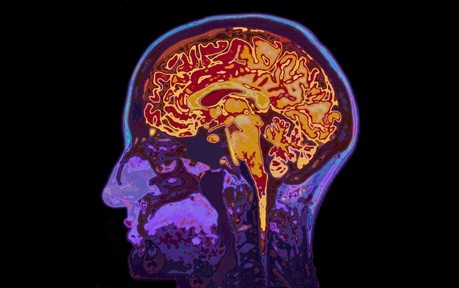Probiotics found in yoghurt may 'benefit cognition' in people with Alzheimer's disease
Probiotics found in yoghurt and supplements could help improve memory and cognition in people with Alzheimer’s disease, new research suggests.

A small clinical trial of 52 participants revealed that people with Alzheimer’s who took probiotic supplements for 12 weeks scored better on cognitive testing than those who did not take the supplements.
Walter Lukiw, Professor of Neurology, Neuroscience and Ophthalmology and Bollinger Professor of Alzheimer's disease at Louisiana State University, who reviewed the study but was not involved in the research, said: “This early study is interesting and important because it indicates that probiotics can in principle improve human cognition.”
All participants, who were aged between 60 and 95 years, still had severe cognitive impairment at the end of the study.
However, the average test score for people in the treatment group increased by more than six per cent, while the average score for the non-treatment group actually decreased.
Moderate but significant
Although the cognitive improvement shown is moderate, it is nonetheless significant and the study proves that probiotics can improve human cognition.
Professor Lukiw added: “This is in line with some of our recent studies which indicate that the gastrointestinal tract microbiome in Alzheimer’s is significantly altered in composition when compared to age-matched controls.”
Previously, probiotics have been shown to improve learning and memory and reduce anxiety and depression in mice, but there has been no evidence of cognitive benefits of probiotics in humans until now.
Professor Mahmoud Salami, senior author on the study from Kashan University in Tehran, Iran, said: “In a previous study, we showed that probiotic treatment improves the impaired spatial learning and memory in diabetic rats, but this is the first time that probiotic supplementation has been shown to benefit cognition in cognitively impaired humans.
“These findings indicate that change in the metabolic adjustments might be a mechanism by which probiotics affect Alzheimer's and possibly other neurological disorders.
Paving the way for futre research
In the trial, participants were split into two groups, one receiving milk and the other receiving milk with added Lactobacillus acidophilus, Lactobacillus casei, Bifidobacterium bifidum and Lactobacillus fermentum – bacteria commonly found in probiotic drinks.
Dr Rosa Sancho, head of research at Alzheimer’s Research UK, said: “The brain is often viewed as being separate from the rest of the body but scientists are understanding more about how changes in the body can impact upon the brain too."
The small study will lead the way for further research and investigation.
Dr Sancho added: “This new study raises interesting questions about the link between the gut and the brain, and their association with Alzheimer's disease.
“The improvements in memory and thinking seen in people with Alzheimer's disease in this study will need to be repeated in much larger studies before we can understand the real benefits of probiotics for the brain.
“We don't fully understand how changes in the gut could be affecting the brain, and Alzheimer's Research UK is funding research in this area to improve our understanding of this link.”
Latest News Analysis
 04-Sep-19
Extra £1.5 billion announced for social care in Chancellor's Spending Review
04-Sep-19
Extra £1.5 billion announced for social care in Chancellor's Spending Review
 02-Jul-19
Department of Health forced to rethink care homes' nursing rates after legal challenge
02-Jul-19
Department of Health forced to rethink care homes' nursing rates after legal challenge
 18-Jun-19
Overnight care workers forced to sleep in offices and told 'bring your own bedding'
18-Jun-19
Overnight care workers forced to sleep in offices and told 'bring your own bedding'
 14-Jun-19
Back in the closet: Third of care home staff have had no LGBT+ awareness training
14-Jun-19
Back in the closet: Third of care home staff have had no LGBT+ awareness training
 11-Jun-19
PM candidates on social care: Rory Stewart calls fixing care an 'unfinished revolution'
11-Jun-19
PM candidates on social care: Rory Stewart calls fixing care an 'unfinished revolution'